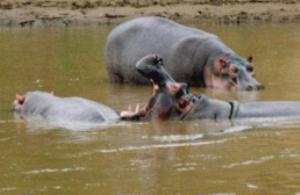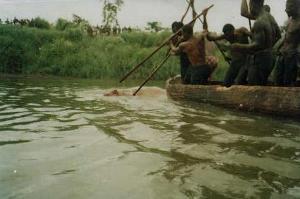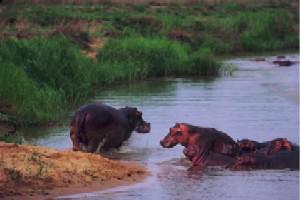Gautier Koffi Amoussou
This project aim is then to identify the focal landscape where NGOs and wildlife agencies could emphasize their conservation actions.

In Benin Republic, the hippo population in Mono River Basin is split into small isolated groups from single to one hundred individuals. These small populations are vulnerable to catastrophes, such as drought or a surge in poaching, as well as to genetic problems resulting from risk of inbreeding so that the current prospects for their long-term survival must give cause for concern.

Habitat loss has been identified as the factor that most threatens hippos survival. Farmers increasingly transform the natural landscape by clearing wetlands habitat for agriculture. Hippos, while tolerant of human disturbance to some degree, are unable to survive when the natural habitat becomes dominated by farmland and fisheries.

It is actually imperative that hippo’s habitat requirements are understood and identified, so that land and wetlands can be managed both for conservation and human activities (agriculture and fisheries).